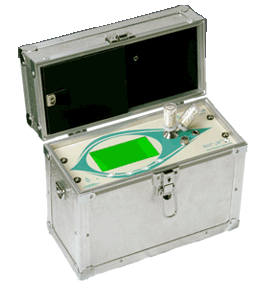Natural Gas: How Safe Is It?


Natural gas is fast becoming the number one choice for many families as a way to heat their homes and even power their vehicles. It has been used in the United States for decades, and it has been steadily gaining popularity since it was first introduced as an alternative fuel in 1949. There are many myths surrounding the use of natural gas, and many people believe it to be toxic and even highly explosive. The fact is, natural gas is a safer, cleaner method of energy production, and many homes and businesses are turning to gas in an effort to keep their energy bills down and do their part to protect the environment from harmful CO2 emissions.
Is Natural Gas Dangerous?
Natural gas is odorless, tasteless, and invisible to the naked eye. It is a legal requirement for all processing plants to add a substance known as mercaptan to their gas which is responsible for the strong smell associated with natural gas. This makes it much easier to detect any leaks as soon as possible. Although gas does have the potential to explode, it requires just the right mixture of gas and air and has an extremely high temperature of ignition. It is also non-toxic and lighter than air, so any leaked gas will simply rise into the atmosphere and dissipate as long as there is adequate ventilation.
How Safe Is It For The Environment?
Compared to petroleum and coal, natural gas is much less damaging to the planet and releases far fewer carbon emissions. It is composed mainly of methane which is considered a harmful greenhouse gas, but this currently only accounts for 3% of the air pollution in the United States. It is also far cleaner to extract and process, and does not release further pollution into the air during refinement. Cars that run on natural gas are also far less damaging to the environment, and many motorists have decided to switch their engines over to natural gas in an effort to reduce their carbon footprint.
How Is It Stored?
Natural gas is stored at special processing plants which are located all over the country. They have the responsibility of ensuring that the gas they supply is of an extremely high standard. It is important to monitor the temperature, pressure, and moisture content of any stored natural gas, as any one of these factors could compromise its safety and quality. New technological developments have made it easier than ever to perform these assessments, and portable moisture analysers can give accurate measurements at any stage during processing.
Natural gas provides a far cheaper and cleaner method of generating energy than any other fossil fuel, and will hopefully continue to gain popularity over time. As long as manufacturers take special precautions to ensure their gas is properly stored and monitored, it provides a safer alternative to petroleum and coal. A growing number of countries around the world are beginning to invest money in the use of natural gas as an alternative fuel, and many now regard it as a better transportation fuel than diesel.
Mark Drewery is a energy safety consultant. He enjoys writing about his experience in the natural gas industry on energy related blogs.
